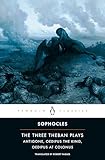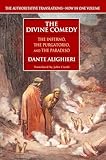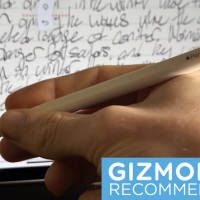Chigozie Obioma explores the thematic power and appeal of fate in his masterful sophomore novel, An Orchestra of Minorities. “I think it’s the question of fate’s unknowingness, its unquestionability, its irrationality, its madness, its unpredictability, its mercy, its brutality, its generosity, its elusiveness, its banality, its vitality, and all the things you can ascribe to it. It is the most metaphysical of all phenomena—if we can call it a phenomenon. I cannot conceive of a greater topic for great literature,” he said.
Narrated by a chi, or guardian
spirit, Obioma’s latest novel follows the life of Chinonso, a poultry farmer,
whose entire world changes when he comes upon a young woman named Ndali, who is
preparing to jump from a bridge. Soon, Chinonso and Ndali find themselves in
love. But, like most things, their relationship proves itself to be more
complicated than either of them could have expected. Burdened and blessed by
the weight of sacrifice, determination, and destiny, Obioma takes readers on a
journey that weaves from the physical world into the spiritual one.
Obioma and I spoke about classic
literature, Nigerian influence, and human limitations.
The Millions: When I
read your novels, I recall elements of myths, epics, and even Greek tragedies.
When you set out to write, do you know you’ll be telling your stories in a
style and language that is reflective of these forms?

Chigozie Obioma: My answer would be that I grew up consuming Greek myth and Shakespeare, and Igbo tales. Across them, there is a tight thread, woven into a knot, which makes it almost impossible to tell them apart from each other. The universality of the archetypes in these stories—whether it is of the murderously ambitious serviceman who becomes convinced he must become king (in Macbeth) or the murderously angry man who becomes convinced that his life’s duty must be to hunt down the man who killed his father (Oedipus Rex) or of the man who embarks on a far journey into the forest of the Living and the Dead to reclaim his male potency (the tale of Ojadili)—make some of the most fascinating stories I have encountered.
So when I write, I’m often drawn unconsciously to these. The only conscious choice I make in this regard is in picking my subjects. I’m more chiefly concerned with metaphysics of existence and essence as they relate to the Igbo philosophy of being. We believe that life is in essence a dialectic between free will and destiny. It is a paradox: that you can make a choice, yet, that everything is preordained? And it is in this space that I anchor my stories.
TM: Do you think
you’ll ever veer away and write another kind of novel?

CO: I’m not sure but I know, by the short fiction I’ve written, that I’m capable of doing that. The issue is, the subjects I have been choosing are often so vast, so expansive they demand to be told in new ways. It is a constant surprise for me, personally. In fact, when the idea of narrative structure of The Fishermen first came to me, I waved it off as crazy. But as I wrote the book, it demanded that Ben tell the story that way. For An Orchestra of Minorities, I resisted the very challenging task of creating the chi. But again, the subject and vision for the novel demanded this structure. We will see what happens in the future.
TM: Your two novels
are both set largely in Nigeria, and there is a clear love and respect of place
in your prose. Do you think of Nigeria as being a character in itself in your
work?
CO: Absolutely, in
both novels. The Fishermen has been correctly read as a metaphor for how
Nigeria was created by the chaos left in the aftermath of the encounter with
the madman (therein the colonialists who insisted we must become this specific
way). Nigeria has a more physical presence in An Orchestra of Minorities.
It is the land that sends its child—Chinonso the main character—away into his
great suffering and is also the mother that embraces him when he returns.
This is my complex relationship with Nigeria even on a personal level. It
is at once the home that sent me away, out of it because of its lack of
provisions for me, and it is the home that embraces me whenever I return.
TM: From where did you
get the idea to write An Orchestra of Minorities?
CO: I had been thinking for a long time about writing a novel about the Igbo civilization, a cosmological novel that will document for posterity the complex systems of my people. I wanted, in essence, to do what John Milton and Dante Alighieri did for Western civilization. But I didn’t know how to go about it until I moved to the Turkish republic of Northern Cyprus and encountered a Nigerian man who was duped into moving to North Cyprus and, when he discovered he had lost everything, got drunk and died tragically after falling from a three-story building. That became the inspiration for Chinonso. I wrote about that experience for The Guardian in 2016.
TM: I have to ask
about the narrator of An Orchestra of Minorities. A chi, or guardian
spirit, is who tells of the story of Chinonso and Ndali. Is having a narrator
who isn’t restricted by human limitations more difficult to write because of
the unknown boundaries? Or does that sense of freedom make the chi easier to
voice?
CO: The answer would
be both, but I imagine that the latter category will receive precedence. This
is because of the nature of the chi itself and the journeys it undertakes. The
Igbo has a concept of the heavenlies, a place where the afterlife happens. But
various zones and places in the Igbo nation do not have a unified description
of what it looks like. And where the descriptions are present, they are not as
comprehensive as you’d have, say, heaven in the Judeo-Christian tradition. So,
I had to invent something as close enough to what our ancestors would have
believed Alandiichie must have looked like. Things like this were very
difficult to do. But also, as you noted, the chi isn’t restricted by human
limitations so one has some space to write it without any fear of logical
inconsistencies or logistics. But the chi is also limited by a central
cosmological belief of the Igbo people. And it is more than 700 years old, so,
its memory is vast and to keep up with its commentary on life and being, to
continuously give it consistent prelapsarian eloquence—which sometimes allows
it to function as both a first and third person narrator—was difficult.
TM: Most of the
chapters begin with Chinonso’s chi offering wisdom. In one of the early
sections, the chi says, “Fear exists because of the presence of anxiety and
anxiety because humans cannot see the future. For if only a man could see the
future, he would be more at peace.” Do you think that’s true for contemporary
life, too?
CO: I think so, at least as far as I know. There is a constant quest to know the future, to divine into matters we do not know. This is an ancient, almost primal quest that humanity has been engaging in. This is why Americans go to the tea leaf readers and Nigerians to “Miracle Center” churches and traditional priests. Que sera sera—what will I be? Will I be rich? Will I get that job? How about kids, will I have them? Are you sure this is the right man or woman to marry? OK, well, when will I die? And etcetera. I dealt with this fear as the central inciting action in The Fishermen as well.
TM: Thematically, this
novel looks closely at the value of sacrifice and the limits of love. However,
I want to focus on one theme that I think of most of all when thinking of An
Orchestra of Minorities: how fate shapes our lives. Chinonso struggles
constantly with the idea of his own life’s fate. Ndali and Chinonso’s chi do
too, but with some limits. What is it about fate that makes it such a compelling
topic?


CO: I think it’s the question of fate’s unknowingness, its unquestionability, its irrationality, its madness, its unpredictability, its mercy, its brutality, its generosity, its elusiveness, its banality, its vitality, and all the things you can ascribe to it. It is the most metaphysical of all phenomena—if we can call it a phenomenon. I cannot conceive of a greater topic for great Literature. As we speak, I’m writing an essay titled “Retreat from the Metaphysical” which looks at how great fiction has always tackled these questions and how modern fiction seems to be looking more and more at the self and to become more and more solipsistic because our vision of the scarcity of life is being obscured by the overwhelming abundance provided us by capitalism. Think of Kafka’s Metamorphosis, Milton’s Paradise Lost which dealt with the question of foreknowledge and predestination—these are centered around the question of fate.
That said, fate is at the center of the Igbo-Odinani belief system. And if there is anything I have been trying to achieve in my work to date it is to center African philosophical ideas in the world discourse. Look around at the vast oceans of ideologies that mean anything today even to Africans themselves and none comes from us. The agelong erroneous belief that we had no complex systems of thought continues unchallenged, and today, even our intellectuals tramples on our cultural beliefs and philosophy. An Orchestra of Minorities shines a light on many strands of Igbo thought, and one of them is the essence of fate and its place in the cosmology of human existence.
TM: Chinonso is such a
complicated man. He saves someone’s life by sacrificing that which he values so
much. He loves. He tries to better himself. But he is also deeply flawed. He
does things rashly. He has a bad temper. He abandons who he is. I don’t want to
spoil too much, but what do you hope readers take away from Chinonso?

CO: I think this is open to the reader. I completely agree with you that Chinonso is very complicated and he is all of these things. But there is a line about him from the book that I always think about: “He has been vandalized by a spiritual politics into which he had been unwillingly conscripted.” This is my view of him. I think he is changed mostly by the things that had happened to him, and that test his humanity. And sometimes, when our humanity is tested beyond what we can bear, we can fail. This was the central theme of William Golding’s classic, Lord of the Flies.
But also, there is the element of
the physical politics that vandalize him: being defrauded by others and the
international racism he faces in Cyprus, which causes him to be unfairly
jailed. These things shape and reshape him, and his character evolves all
through the story till the last act in which he becomes, himself, a vandal.

TM: Readers fond of Homer’s epic Greek poem The Odyssey will likely view An Orchestra of Minorities as a contemporary retelling of sorts. How heavy of an influence was that text as you began writing? Did you always know your novel would have some similarities?
CO: In a way, yes. As I was plotting, it occurred to me that Chinonso’s journey would resemble that of Odysseus. So, I had him read the book as a child and use Odysseus’s story as a device to encourage him to continue on during times when it feels as though his troubles are beginning to sink him. But this is not a rewrite or re-imagining or retelling of Homer’s tale. There are just similarities.
TM: Book
recommendations are basically what I live for. There are a few weeks until An
Orchestra of Minorities is available, so I want to ask you something a
little different as we close. Are there any books you suggest readers check out
before they pick up your book? Ones that might help put readers in the perfect
place before they get to know the story of Chinonso and Ndali?




CO: I would ask them to read John Milton’s classic Paradise Lost, if they haven’t done so. I would also recommend Dante’s Inferno. For an understanding of some of the Igbo traditions readers will encounter in my book, I recommend Chinua Achebe’s Arrow of God. But absent these, great contemporary books I have recently read and loved are Gun Love by Jennifer Clement and The Diving Bell and the Butterfly by Jean Dominique Bauby.
Chigozie Obioma’s An Orchestra of Minorities is scheduled
to hit bookstore shelves on Jan. 8, 2019. Chigozie will be on tour to promote
his latest release. Be sure to check him out at one of his scheduled events:
1/8/2019, 5:00 PM: University of Nebraska/ Lincoln, NE
1/9/2019,
7:30 PM: Greenlight Bookstore/ Brooklyn, NY with Nicole Dennis-Benn
1/10/2019,
7:00 PM: Harvard Bookstore/ Cambridge, MA with Okey Ndibe
1/11/2019,
7:00 PM: Books & Books/ Coral Gables, FL
1/14/2019,
7:00 PM: Novel Neighbor with the International Institute of St. Louis and
WeStories/ St. Louis, MO
1/19/2019,
7:00 PM: Brazos Bookstore, Houston, TX
1/21/2019,
7:00 PM: Raven Bookstore/ Lawrence, KS
2/6/2019,
7:00 PM: Madison Central Library/ Madison, WI
3/3/13/2019,
6:30 PM: Indigo Bridge Books/ Lincoln, NE
The post Fate’s Brutality: The Millions Interviews Chigozie Obioma appeared first on The Millions.
Source : Fate’s Brutality: The Millions Interviews Chigozie Obioma












